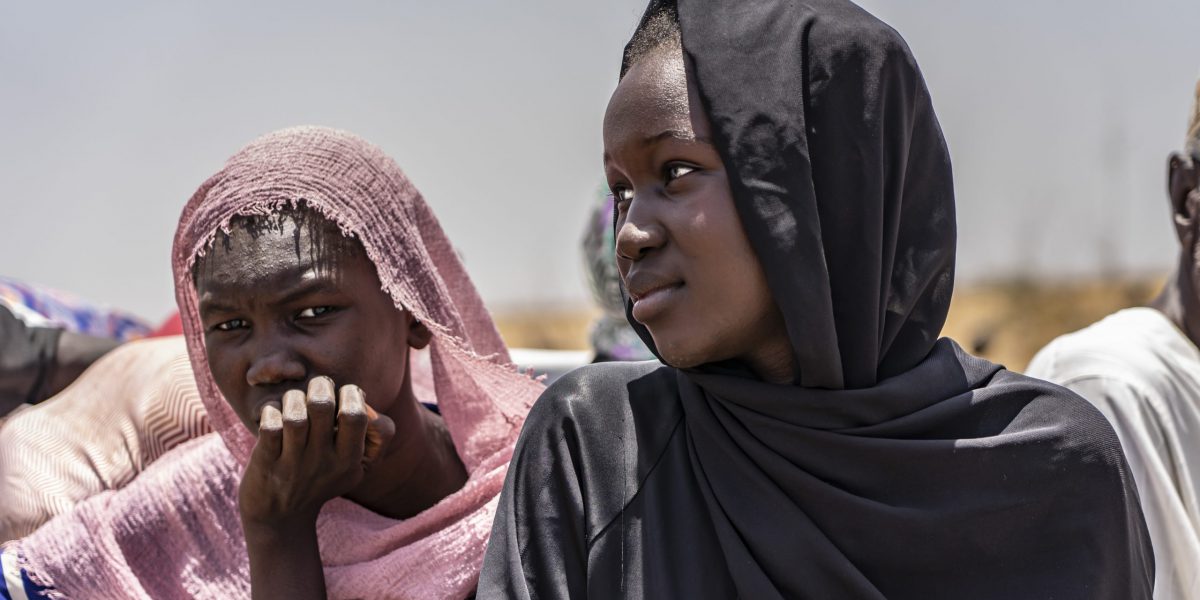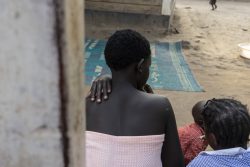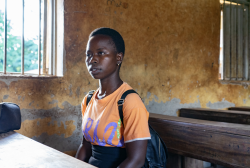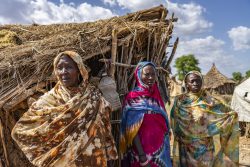The price to pay: being a girl in South Sudan
11 October 2023|Paula Casado Aguirregabiria

The situation of inequality suffered by girls in South Sudan is deeply rooted in the country’s traditional practices.
For most South Sudanese communities, having a daughter is considered a blessing. However, this statement does not go in the sense we would like to, but rather in the opposite. A girl, for many South Sudanese families, is a future source of income: someday, that girl will be old enough to get married (here, we are talking about girls from 11, 13 years old) and some men will be willing to pay a lot of money to take her home.
But of course, in this entire process, girls have no say. They have no voice.
Girls are a blessing not because they are a gift from heaven, but because they are an asset with which to do business and make profit at the expense of her freedom.
A girl in South Sudan is not the owner of her decisions or her life. Rather, the complete opposite.

In the Kakuma Refugee Camp, in Kenya bordering South Sudan, we have a protection centre for women whose lives are in danger due to issues related to gender-based violence (GBV). In this centre we have many young South Sudanese girls and women who, for one reason or another, did not agree to marry whomever their family had decided. Consequently, the family itself is willing to severely harm their own daughter, niece, or granddaughter because of the shame that her denial implies.
It is considered a very serious breach of family honour, and punishments can reach even death. Unfortunately, we have already known many cases that reached that point…
You can read some of their stories in here and here.
Beyond the cultural traditions that harm the freedom and wellbeing of girls, poverty is usually another aggravating factor of such violence.
In many cases, families cannot provide to cover the basic needs of its members (food, soap, sanitary pads, clothing…), so in some cases, the men in the villages offer the girls everything they or their family members may need… but at a very high price. Here we are not talking about money, but about sexual abuse and harassment.
There are some men who take advantage of these desperate situations and sexually abuse girls (because we are talking about girls) until one day they get pregnant and are disowned. Or worse, forced to marry their abuser, to, again, not disgrace the family honour. This situation is aggravated when we consider any sexually transmitted diseases, medical complications derived from early pregnancies, the trauma…

When we talk about access to education, this mentality and perception of the role and value of girls has a very important weight. The general belief is that girls do not belong in school. Yes, in the 21st century we still have entire communities that truly believe that the place of girls and women is at home, cooking and taking care of children.
So, in many cases, families decide not to send their daughters to school. What for, if their only goal in life is to get married, raise children and take care of the house, while their husband works and brings home the money.
Furthermore, when girls get married, they must know how to take care of all the house chores. Otherwise, again, it would be a very serious breach of the honour of the family, who “will not have raised her daughter as they should”.
Dominique Siguad, in the book “The Curse of Being a Girl” comments on this reality, whereby as long as girls are responsible for the honour of an entire family, they can never be masters of their own decisions.
Whereby as long as girls are responsible for the honour of an entire family, they can never be masters of their own decisions.
Girls in South Sudan carry an oppressive yoke, which sees them as livestock and at the same time, the responsible for the honour of family.
And it doesn’t matter what price they must pay. Nobody cares. It’s their obligation.
And these are just some of the types of violence that girls suffer in the country… because if we had to list them all, we would have to write a whole book.

That is why the Jesuit Refugee Service, thanks to the support of our sister organizations such as Entreculturas or the Luz de las Niñas project, we work a lot with this reality: to promote the schooling of girls, keep them away from harmful cultural practices, and help change this oppressive and even, in some cases, lethal mentality.
One of the activities we have carried out within this framework has been the writing and editing of a book of stories and testimonies of girls in South Sudan and other countries in the region: “I Will Tell You My Story: voices of Eastern African girls”.
To know more about the “I Will Tell You My Story” project and get a look at the book, you can access it in here.
It is our obligation to do anything we have in our hands to support the cause of girls in South Sudan and in the world. We are also changing actors, in a way or another. We have transformation power. You have transformation power.
You can support the cause of girls in EAR by making a donation or by sharing this content to others!


